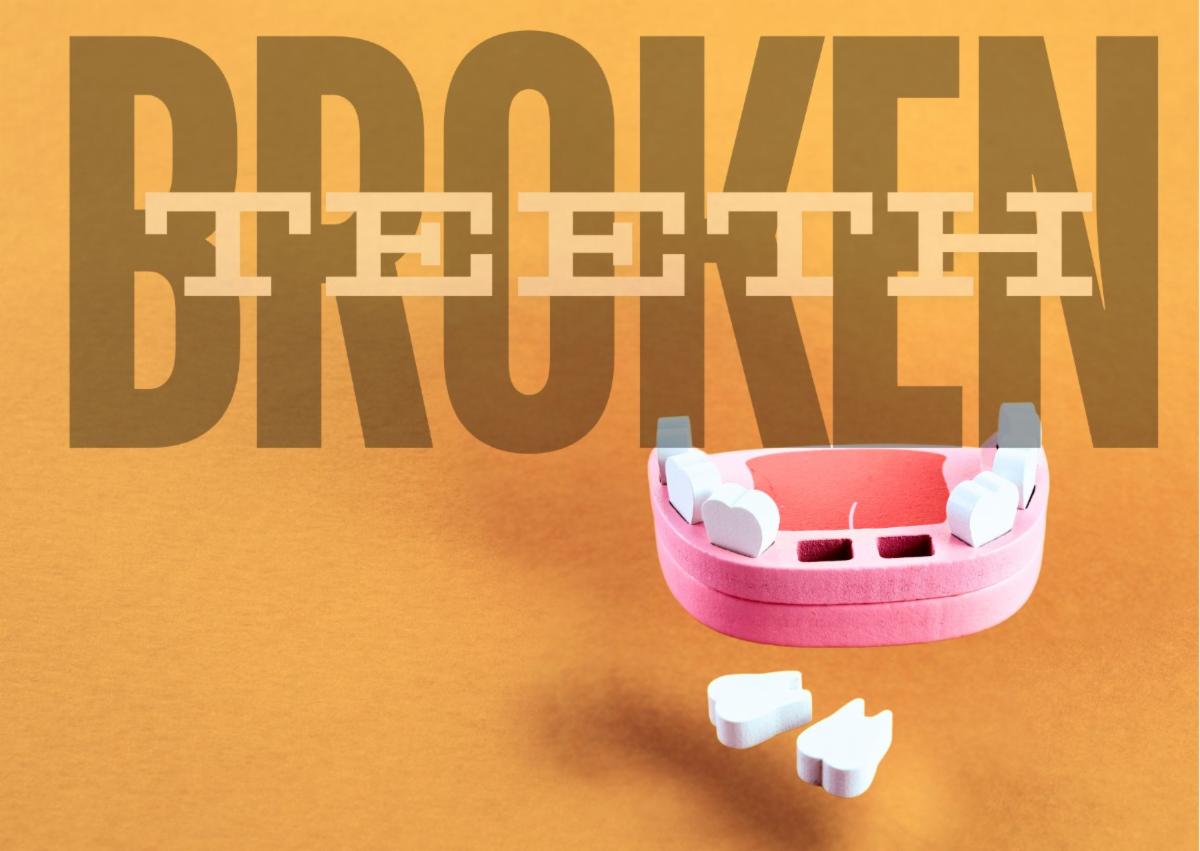
Those Who Need It Most

I don’t know how it happens, but it is almost a certainty. I would host a
Read more...
Condemnation

For the second time in three years, I was selected to participate in the juror selection process for the Franklin County Court. After a morning of waiting, the lawyers agreed upon their panel and dismissed me from the juror pool. However, while I waited, the bailiff told us that Franklin County has approximately 2300 cases backlogged, and all of these individuals are awaiting their day in court. How exhausting it would be to wait for your trial to begin. Whether you consider yourself guilty or innocent, waiting that long would drain anyone of hope and energy.
The defendant was accused of armed robbery and assault with a deadly weapon. It is not a trivial case, but one that greatly affected both parties. However, the part that astonished me was the date of this alleged event: February 20, 2021. Where were you on that day? What were your whereabouts? Who did you talk to? What did you say? If I looked back at a calendar, I could figure out where I was, but I don’t think I could tell you about any conversations that day. I am sure that day has more significance for the parties involved in that case than it does for me. For them, those questions are probably seared into their memories. However, after that much time, I am sure that details have been misremembered or forgotten.
The defendant was accused of armed robbery and assault with a deadly weapon. It is not a trivial case, but one that greatly affected both parties. However, the part that astonished me was the date of this alleged event: February 20, 2021. Where were you on that day? What were your whereabouts? Who did you talk to? What did you say? If I looked back at a calendar, I could figure out where I was, but I don’t think I could tell you about any conversations that day. I am sure that day has more significance for the parties involved in that case than it does for me. For them, those questions are probably seared into their memories. However, after that much time, I am sure that details have been misremembered or forgotten.
Two weeks ago, on Sunday morning, as we studied Galatians, we analyzed what it means to demonstrate the fruit of the Spirit. As we dissected the passage, we came to one of Jesus’ more pressing discourses on the fruit that is evident in our lives.
Matthew 12:33-37 – “Either make the tree good and its fruit good, or make the tree bad and its fruit bad, for the tree is known by its fruit. 34 You brood of vipers! How can you speak good, when you are evil? For out of the abundance of the heart the mouth speaks. 35 The good person out of his good treasure brings forth good, and the evil person out of his evil treasure brings forth evil. 36 I tell you, on the day of judgment people will give account for every careless word they speak, 37 for by your words you will be justified, and by your words you will be condemned.”
Consider these words of Jesus. There will come a day when we must give an account for all the things we have said. Rightfully so, as we serve a just and righteous God, we should all be prepared to share what we did in this world with the time we were given. Similarly to the defendant in the court case, we must share where we were on February 20, 2021. Here’s what I probably can guarantee… I was more than likely guilty of missing God’s mark of holiness on that day or one of the adjoining days.
I can imagine myself attempting to give an account of my life. I would stutter and stammer at my moral failures. Line by line, word by word, I would grasp the tragedy of my life. Every thoughtless word, every cruel deed… accounted for. After a lifetime of trying, I know that I will have missed the mark, I know that I will receive the verdict of- GUILTY. Thankfully, Jesus, the Son of the living God, will advocate for us in our bleakest case.
1 John 2:1-6 – “My little children, I am writing these things to you so that you may not sin. But if anyone does sin, we have an advocate with the Father, Jesus Christ the righteous. 2 He is the propitiation for our sins, and not for ours only but also for the sins of the whole world. 3 And by this we know that we have come to know him, if we keep his commandments. 4 Whoever says “I know him” but does not keep his commandments is a liar, and the truth is not in him, 5 but whoever keeps his word, in him truly the love of God is perfected. By this we may know that we are in him: 6 whoever says he abides in him ought to walk in the same way in which he walked.”
I love how this passage does not give us a license to sin, but for those in Christ, we have the best defense lawyer on retainer. Not only will Jesus represent us, but he has also already paid for my failures. And yet, I must give an account. Combining this passage with Jesus’ statements in Matthew 12, we must understand that our treasures, the part of my life that I have buried deep down within our hearts, demonstrate if we genuinely know and love God. We do this by “walking in the same way in which he walked.” Walking as Christ did doesn’t make me innocent of my crimes, but rather an acknowledgment that my sins are paid for, just not by me.
Romans 7:24-8:2 – “Wretched man that I am! Who will deliver me from this body of death? 25 Thanks be to God through Jesus Christ our Lord! So then, I myself serve the law of God with my mind, but with my flesh I serve the law of sin. 8:1 There is therefore now no condemnation for those who are in Christ Jesus. 2 For the law of the Spirit of life has set you free in Christ Jesus from the law of sin and death.”
We deserved a sentence of death; however, we received the sentence of life because we were represented by Jesus. This should propel us to not live according to deeds of the flesh but by walking in the Spirit. We deserved to be condemned for every careless word and deed; however, we can stand before the throne of righteousness covered by the blood of Jesus, where there is no longer any condemnation.
Broken Teeth

Theo has started losing his “baby” teeth. I find the whole process a little traumatic… for me. First, the teeth begin to wriggle and become loose, and as time progresses, you can see the gums recede a little more, making future extraction easier. Last week, the sequence came to a head; his permanent teeth were beginning to push his deciduous teeth out of the way, stretching the nerve and causing him some discomfort. The “toothlings” needed to come out. Thankfully, his fantastic mom came to the rescue and plucked the temporary biters from their impermanent location.
Theo was immediately proud of his new toothless smile. For him, it was a marker of maturity and growing older. Most of his friends had already lost some of their teeth, and he was anticipating the day when he could show them that he, too, was in that prestigious club. We didn’t anticipate how this event would affect his youngest brother, Milo. As soon as Milo saw the vacant tooth cavity, he screamed, “I don’t like broken teeth!” When he first saw the hole where the tooth had been, it had not finished bleeding yet… it was a disturbing sight. He squealed and ran away, causing his older brother to chase him around the house.
Under most circumstances, we are not supposed to lose teeth. It is ordinarily traumatic. We usually wouldn’t promote ripping your teeth out to demonstrate your maturity. If you encountered a person tugging on their incisors and claiming to be older because of it, you would consider them foolish. However, we celebrate this stage when we know that removing temporary teeth is healthy and a natural byproduct of aging. We approve because better; newer teeth are coming in to replace the “baby” teeth—a more permanent solution to what previously existed.
2 Corinthians 5:14-17 – “For the love of Christ controls us, having concluded this, that one died for all, therefore all died; 15 and He died for all, so that those who live would no longer live for themselves, but for Him who died and rose on their behalf. 16 Therefore from now on we recognize no one by the flesh; even though we have known Christ by the flesh, yet now we know Him in this way no longer. 17 Therefore if anyone is in Christ, this person is a new creation; the old things passed away; behold, new things have come.”
There are a lot of Christ-followers that are still living for themselves. They hold on to the life formerly there, never accepting being a new creation. It is like inserting your deciduous teeth into your mouth because you want to enjoy your food more. You can’t grow older and hold onto your youth; our youth is intended to be momentary; we are meant to grow older; it is a part of God’s perfect design for our lives. Life after Christ is transformative; it is better, and you become a new creation. Let us not go back to the days before our new life. “The old has gone the new has come”, so don’t be upset by your old broken teeth.







